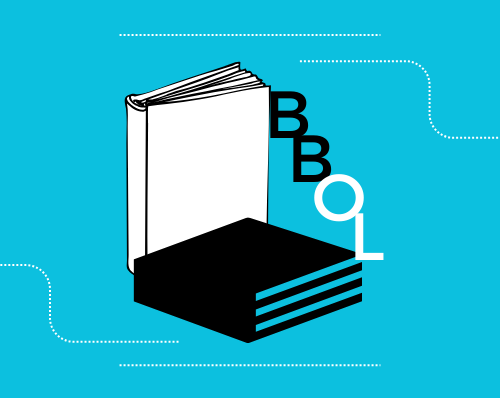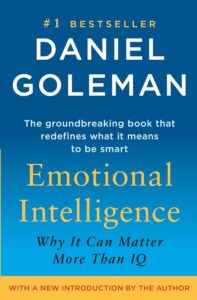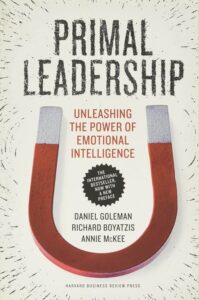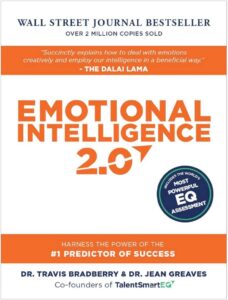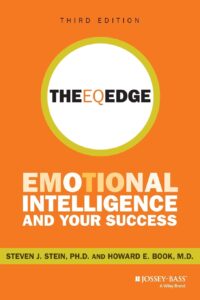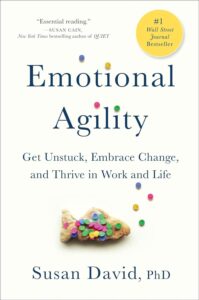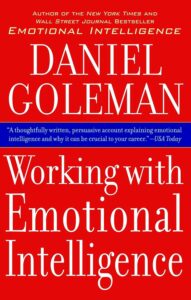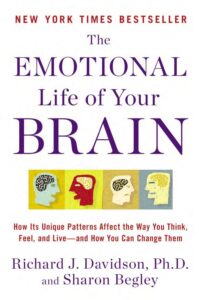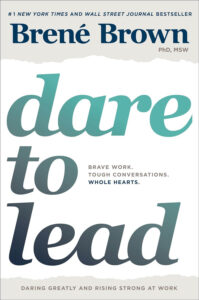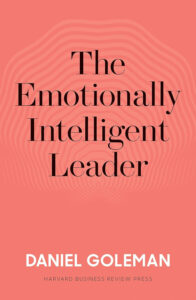Emotional intelligence (EQ) is increasingly vital for personal and professional success. By effectively recognizing and managing emotions, individuals can build stronger relationships, enhance their mental well-being, and boost their career prospects. This article presents a curated list of the best books on emotional intelligence, providing valuable insights and practical strategies to help you improve your EQ skills.
1.“Emotional Intelligence” by Daniel Goleman
Overview:
Daniel Goleman’s groundbreaking book popularized the concept of emotional intelligence. It explains why EQ is crucial for success and how it can be more important than IQ in many aspects of life.
Key Takeaways:
- Importance of EQ in personal and professional success.
- Components of emotional intelligence.
- Strategies for developing and enhancing EQ.
2.“Primal Leadership” by Daniel Goleman, Richard Boyatzis, and Annie McKee
Overview:
This book explores how emotional intelligence is essential for effective leadership. The authors provide insights and strategies for leaders to develop their EQ and inspire their teams.
Key Takeaways:
- Role of EQ in Effective Leadership.
- Techniques for developing emotional intelligence in leaders.
- Creating a positive and productive work environment.
3.“Emotional Intelligence 2.0” by Travis Bradberry and Jean Greaves
Overview:
“Emotional Intelligence 2.0” offers practical strategies for improving your EQ. The book includes an online assessment to measure your current EQ and personalized tips for enhancement.
Key Takeaways:
- Practical strategies for boosting EQ.
- Online assessment to measure EQ levels.
- Personalized tips for improvement.
4.“The EQ Edge” by Steven J. Stein and Howard E. Book
Overview:
This book provides an in-depth look at how emotional intelligence impacts success in various aspects of life. It includes practical advice and real-life examples to help readers apply EQ principles.
Key Takeaways:
- Impact of EQ on success in different areas.
- Practical advice for applying EQ principles.
- Real-life examples of EQ in action.
5.“Emotional Agility” by Susan David
Susan David presents the concept of emotional agility, which involves adapting your thoughts and feelings to navigate life’s challenges effectively. This book provides strategies for improving emotional intelligence and resilience.
Key Takeaways:
- Understanding and developing emotional agility.
- Strategies for improving emotional resilience.
- Techniques for embracing change and thriving.
6.“Working with Emotional Intelligence” by Daniel Goleman
Overview:
Goleman expands on his original book to explore how emotional intelligence can enhance workplace performance. The book offers practical advice for improving EQ in a professional setting.
Key Takeaways:
- Enhancing workplace performance through EQ.
- Practical advice for applying EQ at work.
- Benefits of emotional intelligence in professional success.
7.“The Emotional Life of Your Brain” by Richard J. Davidson and Sharon Begley
Overview:
This book explores the neuroscience behind emotions and how understanding these patterns can improve emotional intelligence. Davidson and Begley provide practical advice for changing emotional patterns and enhancing well-being.
Key Takeaways:
- Understanding the neuroscience of emotions.
- Changing emotional patterns for improved well-being.
- Practical strategies for enhancing emotional intelligence.
8.“Dare to Lead” by Brené Brown
Overview:
Brené Brown’s “Dare to Lead” emphasizes the importance of vulnerability, courage, and empathy in leadership. Brown provides actionable strategies for leaders to develop emotional intelligence and lead authentically.
Key Takeaways:
- The power of vulnerability and empathy in leadership.
- Strategies for developing courageous and authentic leadership.
- Creating a culture of trust and collaboration.
9. “The Emotionally Intelligent Leader” by Daniel Goleman
Overview:
Daniel Goleman compiles essential insights from his previous works to focus specifically on leadership. This book provides tools and techniques for leaders to develop their emotional intelligence and lead effectively.
Key Takeaways:
- Importance of EQ in leadership.
- Tools and techniques for developing EQ in leaders.
- Creating a resonant leadership style.
How to Improve Your Emotional Intelligence
Improving your emotional intelligence involves:
- Self-awareness: Regularly reflecting on your emotions and their impact on your behavior.
- Self-regulation: Developing strategies to manage your emotions, especially in stressful situations.
- Motivation: Setting personal and professional goals that align with your values and passions.
- Empathy: Practicing active listening and trying to understand the perspectives of others.
- Social skills: Building robust relationships through effective communication and conflict resolution.
Frequently Asked Questions (FAQs)
Why is emotional intelligence valuable?
Emotional intelligence is crucial because it enhances relationships, job performance, and mental health. It allows individuals to navigate social complexities and make better decisions.
How can I improve my emotional intelligence?
You can develop EI by focusing on self-awareness, self-regulation, motivation, empathy, and social skills. Reading books on EI and implementing their strategies can significantly help.
Conclusion:
Improving your emotional intelligence can enhance relationships, boost well-being, and lead to professional success. These highly-rated books provide valuable insights and practical strategies to help you develop and apply your EQ in various aspects of your life.
Start your journey to higher emotional intelligence today by exploring these highly recommended books. Click on the links to purchase and begin to transform your personal and professional life.
